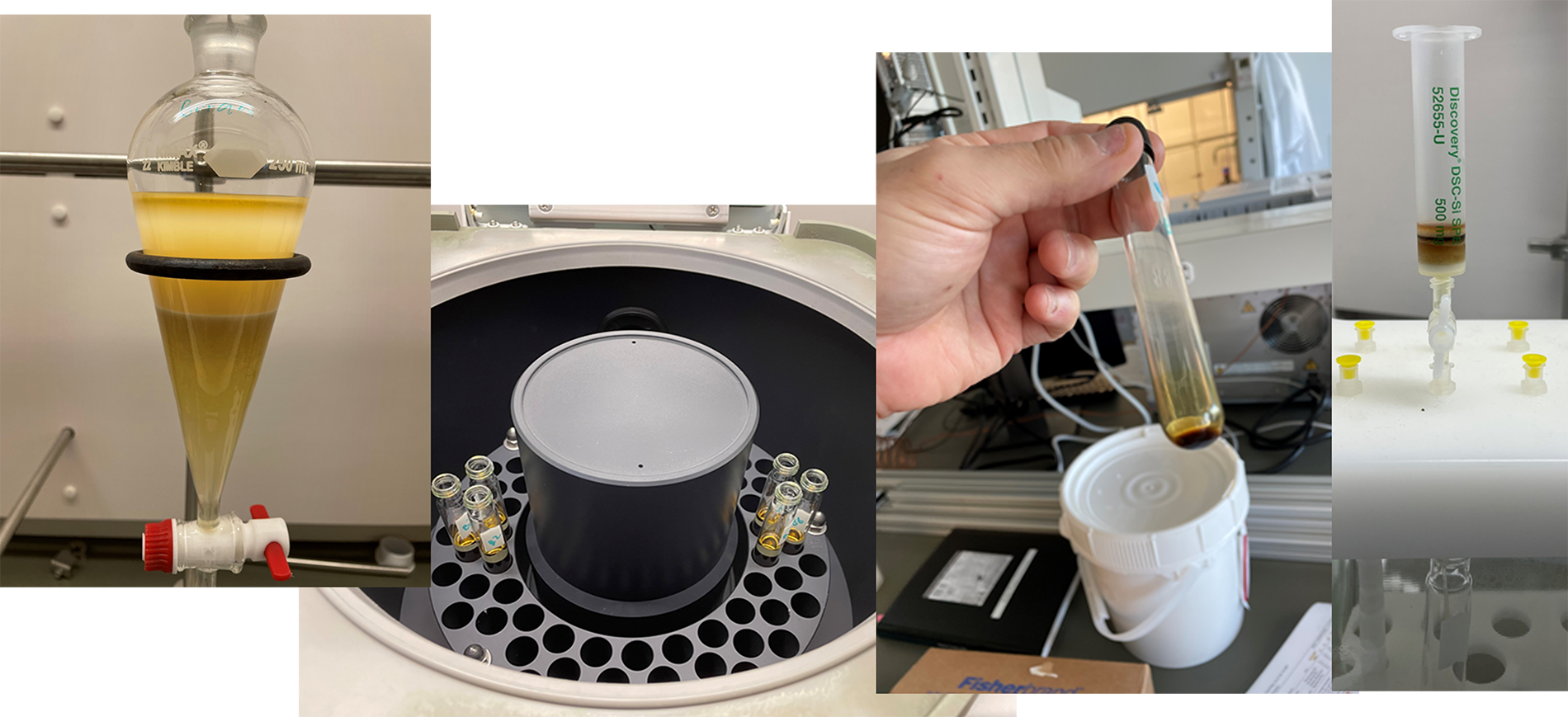Environmental Forensics
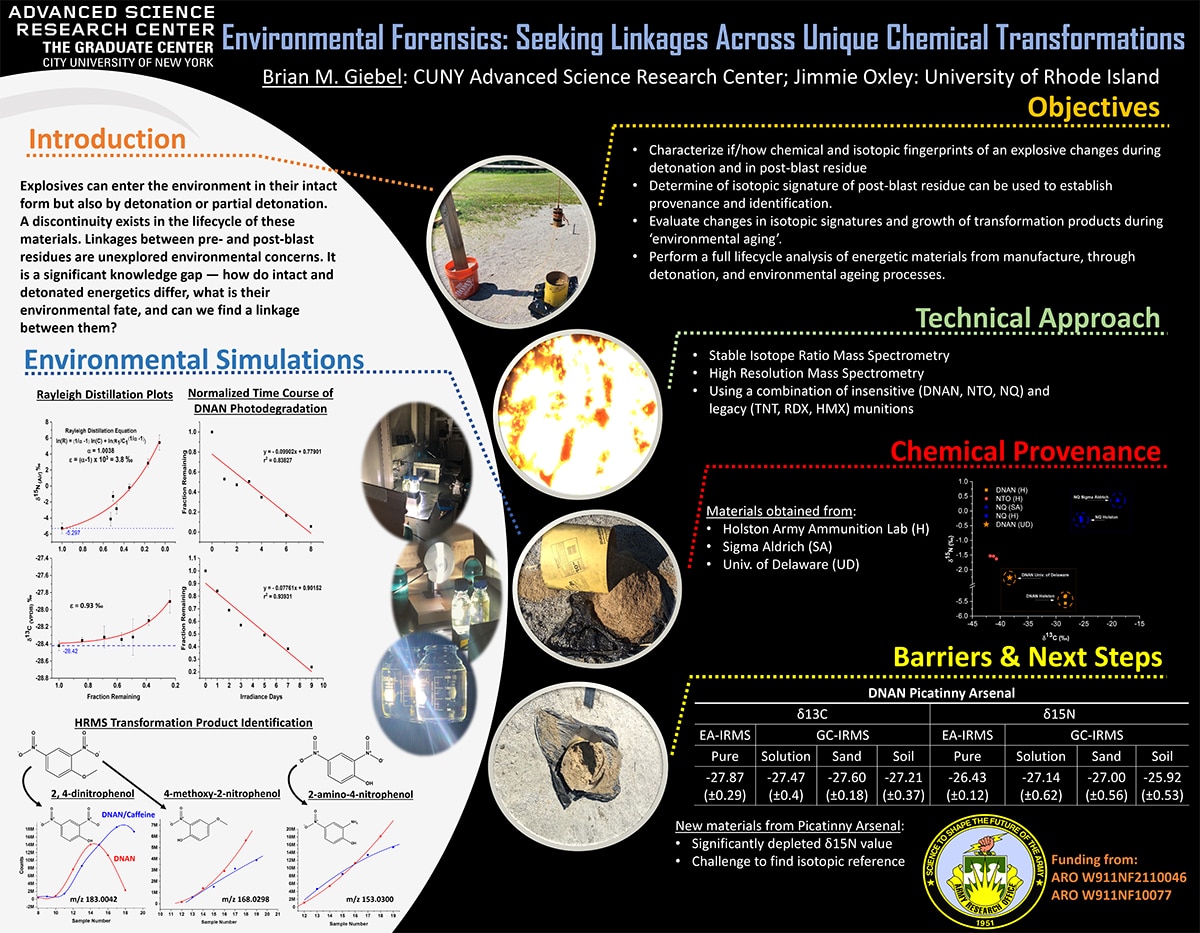
Environmental Forensics: Seeking Linkages Across Unique Chemical Transformations
Explosives can enter the environment in their intact form but also by detonation or partial detonation. A discontinuity exists in the lifecycle of these materials. Linkages between pre-and post-blast residues areunexplored environmental concerns. It is a significant knowledge gap —how do intact and detonated energetics differ, what is their environmental fate, and can we find a linkage between them?
Terrestrial Plastics and the Plastisphere
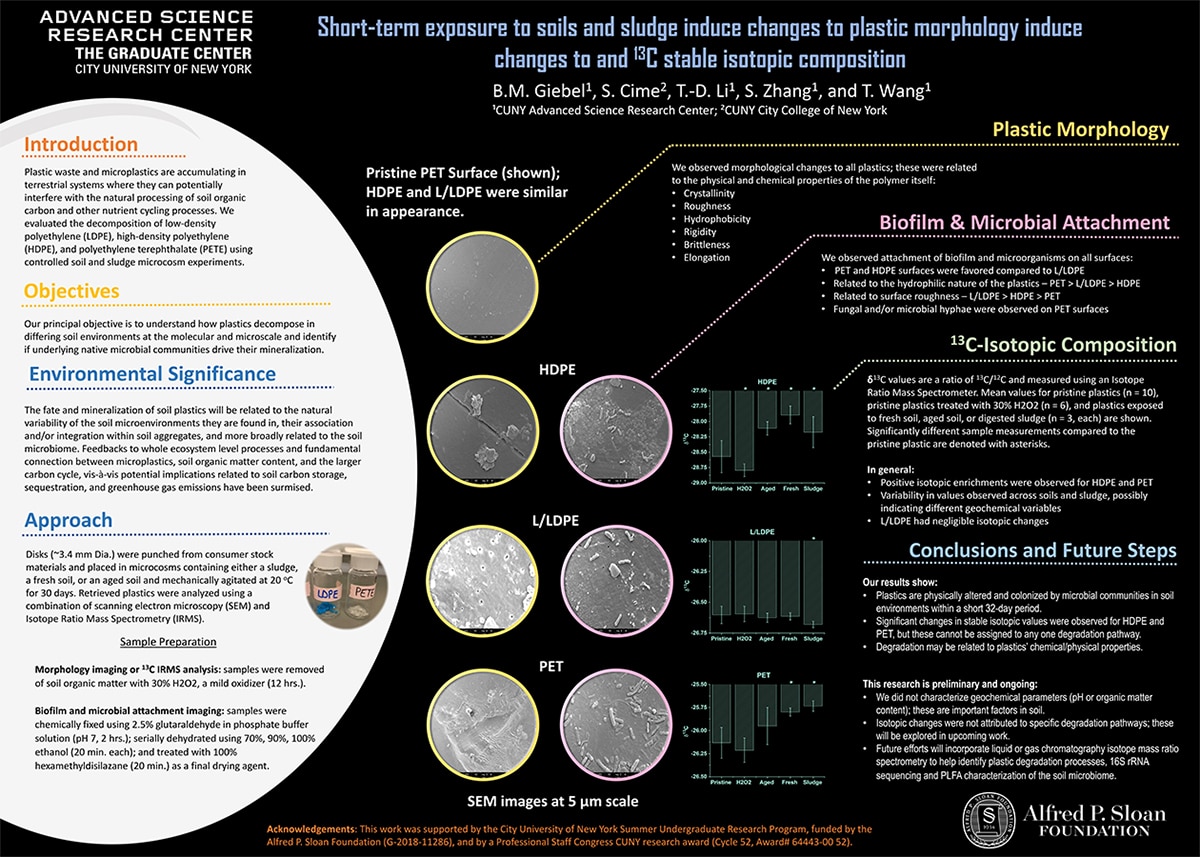
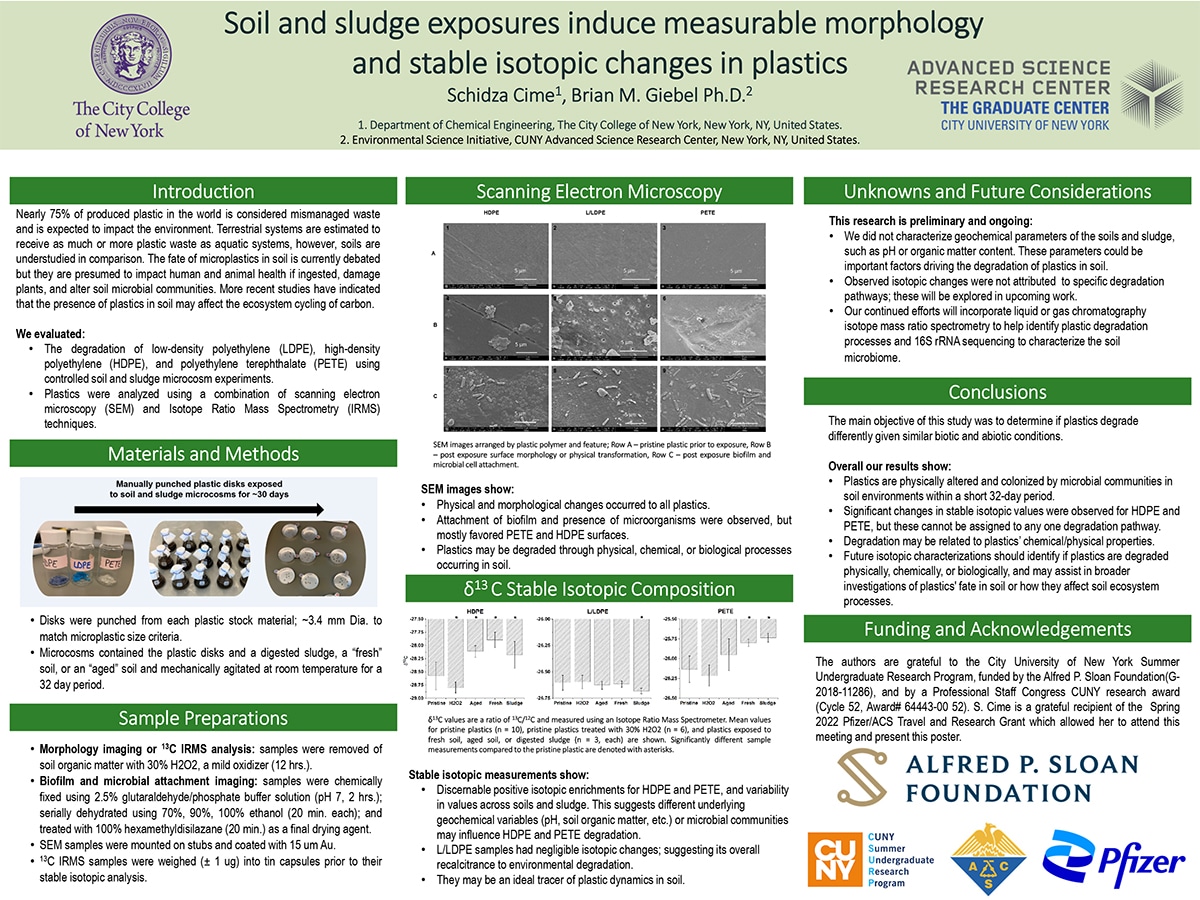
Short-term exposure to soils and sludge induce changes to plastic morphology and 13C stable isotopic composition
Nearly 75% of produced plastic in the world is considered mismanaged waste and is expected to impact the environment. Terrestrial systems are estimated to receive as much or more plastic waste as aquatic systems, however, soils are understudied in comparison. The fate of microplastics in soil is currently debated but they are presumed to impact human and animal health if ingested, damage plants, and alter soil microbial communities. More recent studies have indicated that the presence of plastics in soil may affect the ecosystem cycling of carbon.
We evaluated the decomposition of low-density polyethylene (LDPE), high-density polyethylene (HDPE), and polyethylene terephthalate (PETE) using controlled soil and sludge microcosm experiments.
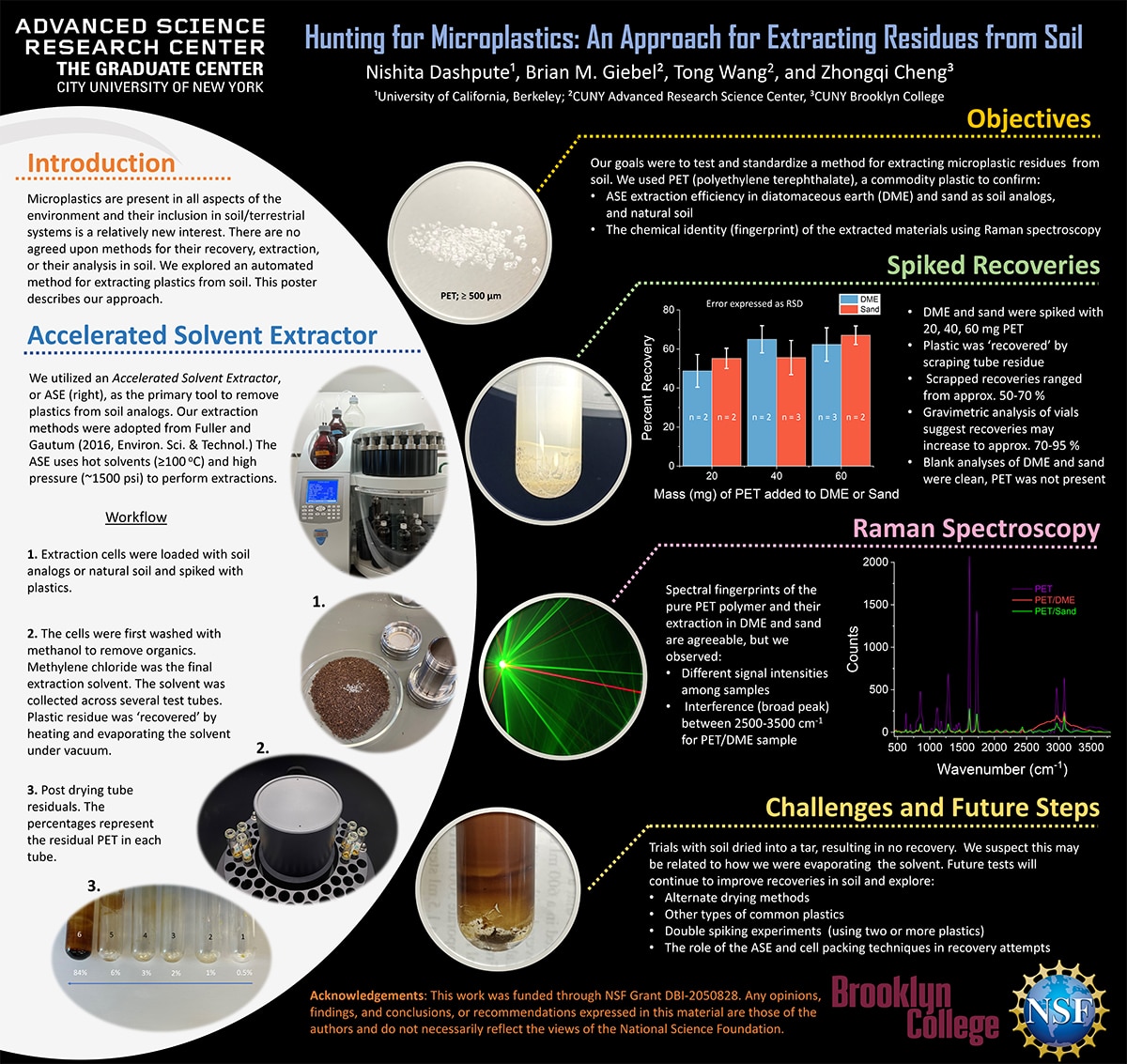
Hunting for Microplastics: An Approach for Extracting Residues from Soil
Microplastics are present in all aspects of the environment and their inclusion in soil/terrestrial systems is a relatively new interest. There are no agreed upon methods for their recovery, extraction, or their analysis in soil. We explored an automated method for extracting plastics from soil.
Advanced Sample Preparation and Extractions Techniques
The laboratory utilizes and develops advanced methods for sample preparation and extraction and can characterize molecular, elemental, and isotopic fingerprints for a range of materials and chemicals found in environmental matrixes, and biological systems. We have experience preparing samples in water/soil matrixes, bone, enamel, serum, blood, urine, adipose and stool. We have recently started to develop methods to use silicone bracelets as environmental sensors and to test the human expososome.
